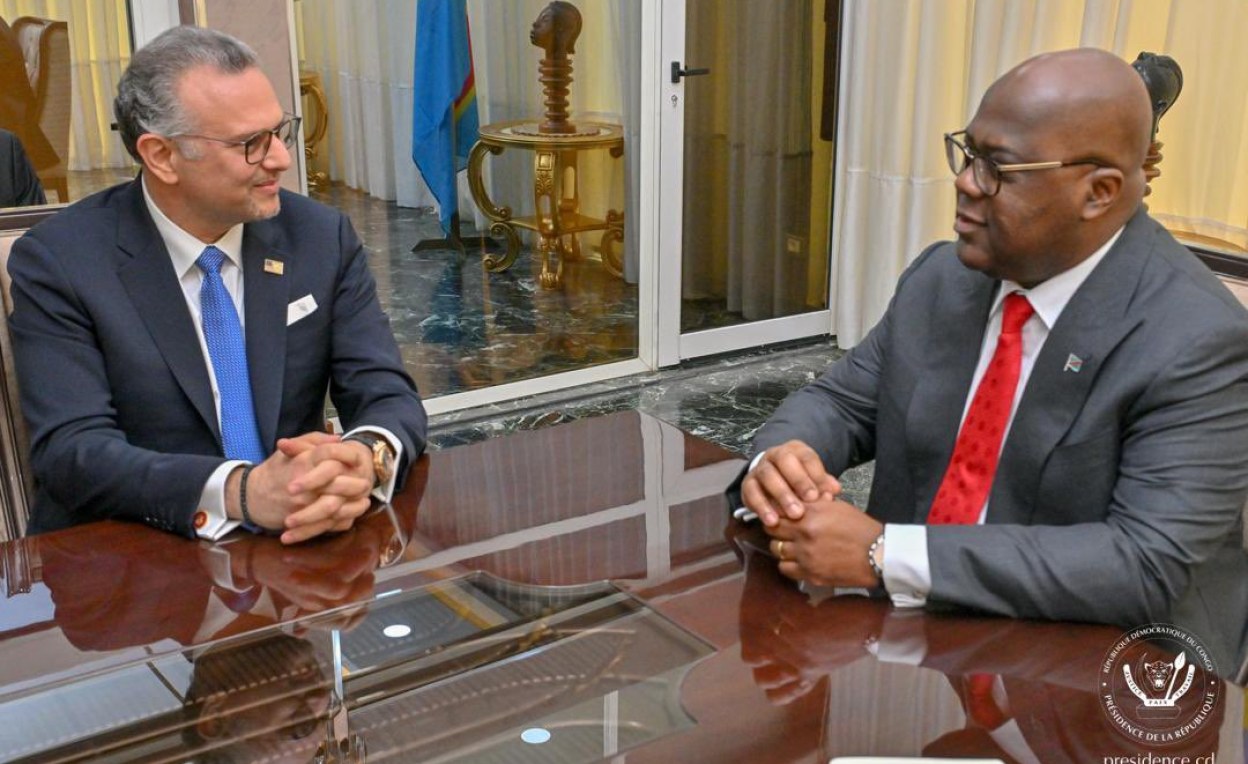 As violent clashes continue to plague the eastern regions of the Democratic Republic of Congo (DRC), national and international leaders are renewing calls for peaceful dialogue over escalating military action. Amid rising civilian casualties and growing humanitarian concerns, analysts and peace advocates insist that sustainable peace in the DRC can only be achieved through inclusive political dialogue—not further militarization.
As violent clashes continue to plague the eastern regions of the Democratic Republic of Congo (DRC), national and international leaders are renewing calls for peaceful dialogue over escalating military action. Amid rising civilian casualties and growing humanitarian concerns, analysts and peace advocates insist that sustainable peace in the DRC can only be achieved through inclusive political dialogue—not further militarization.
In recent months, the provinces of North Kivu, South Kivu, and Ituri have witnessed intensified violence between the Congolese army (FARDC) and various armed groups, including the M23 rebel movement, the Allied Democratic Forces (ADF), and numerous local militias.
The fighting has displaced hundreds of thousands, pushing the total number of internally displaced persons in the DRC to over 6.5 million—one of the largest humanitarian crises on the continent, according to the United Nations Office for the Coordination of Humanitarian Affairs (OCHA).
“Every bullet fired in eastern Congo means another child fleeing school, another woman living in fear, another family torn apart,” said a UN field representative in Goma. “We cannot bomb our way to peace.”
As frustrations mount, many civil society leaders, church groups, and opposition figures have called on President Félix Tshisekedi to convene a national dialogue that includes all stakeholders—armed factions, opposition parties, ethnic leaders, and regional actors.
“Peace cannot be imposed through the barrel of a gun. It must be built through mutual understanding, justice, and reconciliation,” said Reverend Joseph Malu of the Interfaith Peace Initiative in Bukavu.
The Catholic Church, historically a stabilizing force in Congolese politics, has echoed this sentiment, warning that military solutions have historically failed to resolve the root causes of conflict—such as land disputes, ethnic marginalization, and regional interference.
Neighboring countries like Rwanda, Uganda, and Burundi have long been accused of fueling instability in the eastern DRC, either through direct military interventions or indirect support to armed groups.
The East African Community (EAC) deployed a regional force to Congo in late 2023, but its effectiveness has been questioned. Critics argue that without a clear political roadmap, regional troops only provide temporary security without addressing long-term solutions.
“The EAC force must support dialogue efforts, not replace them,” said Jean-Pierre Bemba, former Vice President and current Defense Minister. “A purely military solution is neither possible nor sustainable.”
Meanwhile, the United Nations Stabilization Mission in Congo (MONUSCO) has begun gradual withdrawal plans amid criticism over its limited impact over the past decade.
The human cost of the conflict is staggering. According to Doctors Without Borders (MSF), health facilities in conflict zones are overwhelmed, and thousands of rape and assault cases go unreported due to fear and stigma.
“We need more medicine, not more ammunition,” said Dr. Amisi Katembo, a field surgeon in Beni. “People are dying from preventable diseases while warlords negotiate power.”
In addition to displacement, the DRC faces widespread food insecurity, with over 26 million people estimated to be in urgent need of assistance.
Activists and some members of Parliament are now pushing for a National Peace Conference—similar in spirit to the 2016 Saint Sylvester Agreement—bringing together all sectors of Congolese society under a neutral framework.
“We are not asking for miracles,” said MP Claudine Baluba from South Kivu. “We are asking for a genuine commitment to end the cycles of revenge, corruption, and exclusion.”
There are also renewed calls for justice and accountability, particularly for war crimes and crimes against humanity committed over the years, with some proposing a hybrid tribunal supported by international bodies.
As the DRC stands at a crossroads yet again, one truth remains: peace built on dialogue is the only path to lasting stability.
While the government’s right to defend territorial integrity is recognized, lasting peace cannot emerge from endless fighting. The people of Congo deserve to live free from fear—not under the threat of bullets, but protected by justice, inclusion, and hope.
“We need a new beginning—not another battlefield,” said peace advocate Grace Mukwege, daughter of Nobel Laureate Dr. Denis Mukwege. “Dialogue is not weakness. It is wisdom.”

